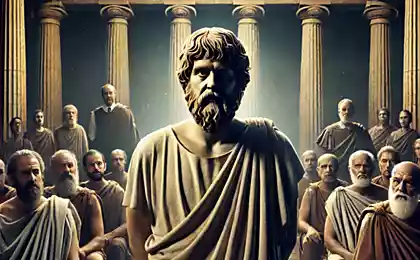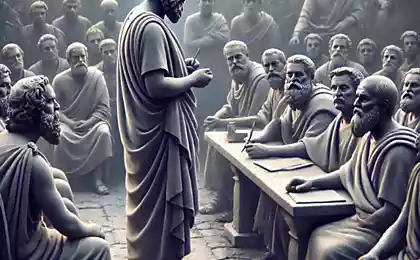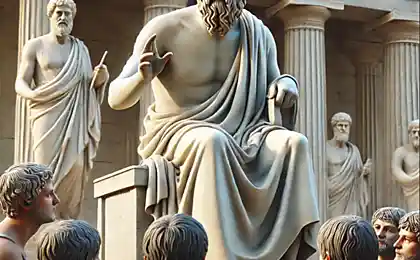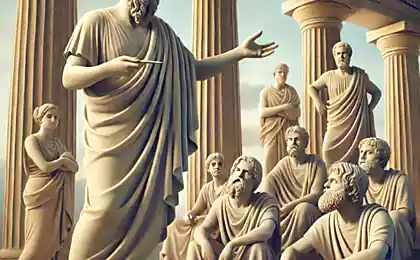231
Socrates: Life and philosophical legacy. Cycle of articles: 1 of 5

Socrates (c. 470-399 BC) was one of the most famous philosophers of antiquity, who had a profound influence on Western philosophy and moral ethics. His philosophy and methods of thinking formed the basis of many directions, ranging from ethics to political philosophy. Socrates left no written works behind him, and we know of his life and teaching mainly through his disciples, among them Plato and Xenophon.

The Early Years of Socrates
Socrates was born in Athens in a family of stonecutter and midwife. His early years were not marked by any special events, and most historians believe that he led a fairly ordinary life. However, his early inclination to ponder and search for truth was probably reinforced by the philosophical and social discussions that were active in Athens at the time.

Influence on his worldview
The formation of the worldview of Socrates was influenced by many philosophers and thinkers of ancient Greece. Among his early teachers and inspirations are Anaxagoras, Parmenides and Heraclitus, whose ideas about the nature of things and the universe were reflected in his quest for knowledge. However, Socrates went further, focusing on ethics and morality, arguing that knowledge itself leads to virtue.
Apprenticeship and Philosophical Circles of Athens
Socrates quickly gained popularity in the philosophical circles of Athens due to his unique method of discussion - the so-called "Socratic method". This method consisted in asking questions that led the interlocutor to realize his own mistakes or ignorance. Socrates did not consider himself a teacher in the traditional sense; he did not offer ready-made answers, but only helped people to find the truth through dialogue and introspection.
His contributions to philosophy
Socrates’ contribution to philosophy is invaluable, especially in the fields of ethics and moral philosophy. The highest goal of human life is the pursuit of virtue, and knowledge is the key to being a good and just person. These ideas formed the basis of Western philosophy and had a significant influence on the thinkers of later epochs. The basic principle of Socrates – “I know that I know nothing” – is still one of the most famous philosophical phrases.
How have his views influenced modern philosophy?
Socrates laid the foundation for many modern philosophical ideas, especially in moral philosophy and ethics. His method of critical analysis and self-exploration became the basis for many philosophical traditions, including rationalism and existentialism. His idea that knowledge leads to virtue continues to be debated today in various fields of morality and ethics.
Difference from other thinkers of the time
Unlike other thinkers of his time, Socrates left no letters or writings behind. He refused to write books because he believed that philosophy should be a living dialogue. His method of critical inquiry differed from traditional teaching methods in that it focused on questions rather than assertions. He challenged established beliefs and values, which eventually led him to trial and the death penalty.
This article is part of the Socrates series. In the following article, we will examine in detail the Socratic method, its key principles, and their impact on modern pedagogy and philosophy.
The Teachings of Socrates: Part 2
The Socrates Method: The Art of Asking Questions Cycle of articles: 2 of 5























